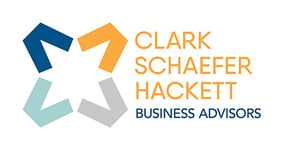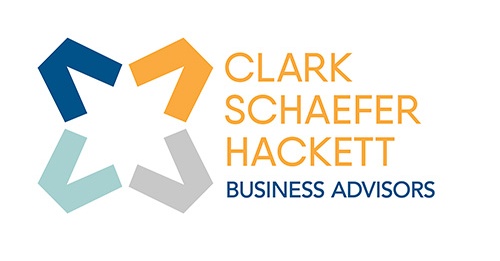IRS Cracks Down on Partnership Tax Strategies
The IRS is ramping up its efforts to crack down on basis-shifting transactions, a tax strategy used by some partnerships to significantly reduce their tax liabilities. Potential new regulations, including proposed rules and reporting requirements aimed at curbing these abusive practices, will likely impact partnerships moving forward.
Check out our full article written by CSH Shareholder and tax expert Brittany Lawrence to stay ahead of the curve and ensure your business remains compliant.
The IRS has unveiled a new multistage regulatory initiative aimed at addressing what it describes as a "significant tax loophole" often utilized by large, intricate partnerships. This effort stems from the agency's concern that certain partnerships may be leveraging transactions with related parties to significantly reduce their tax liabilities inappropriately.
Tactic in the IRS Crosshairs
The key area of concern for the IRS is referred to as basis-shifting transactions. In these arrangements, a single business that operates through many different legal entities enters into a series of transactions. The goal is to leverage partnership tax rules to reduce taxable income, thereby minimizing tax liability. This strategy takes advantage of rules that govern when a partnership can receive a basis step-up in assets that would allow for:
-
Additional depreciation, or
-
Reduced taxable gain or increased taxable loss on disposition.
For example, a partnership might shift tax basis from property that doesn't generate tax deductions (for example, stocks or land) to property that does (for example, equipment or machinery). Some taxpayers also use basis-shifting transactions to depreciate the same asset repeatedly.
According to the IRS, these "abusive schemes" have flourished while it was underfunded. Although filings from pass-through businesses with more than $10 million in assets increased 70% from 2010 to 2019, the audit rate for such entities plunged from 3.8% to 0.1% during that time. By using some of its recent funding under the Inflation Reduction Act to crack down on basis shifting, the IRS expects to raise more than $50 billion in revenue over 10 years.
Multipronged Attack
In the first stage of its effort to stop this abusive practice, the IRS announced plans to issue three sets of proposed regulations and provided a new revenue ruling to alert taxpayers about upcoming challenges to certain transactions. The details of its initial phase are as follows:
Proposed rules to block basis shifting
Proposed regulations will provide rules under the partnership provisions of the tax code on the effects on adjustments resulting from basis-shifting transactions in a related-party partnership. If finalized, the rules would effectively eliminate the "inappropriate" tax benefits from such practices.
A second set of proposed regulations would apply a single-entity approach for interests in a partnership held by members of a consolidated group. If finalized, the regulations would stop members of a consolidated group who are in a partnership from shifting their basis in a way that skews the group's income. If finalized, the regs could affect a significant number of partnership transactions.
Proposed rules to require reporting
The IRS will also publish proposed regulations that would require some partnerships and their advisors to report if they and their clients are participating in certain basis-shifting transactions. The proposed regulations identify the following actions as reportable transactions of interest:
-
Current or liquidating distributions to a related partner that result in a basis increase in the partnership's remaining assets,
-
Liquidating distributions to a related partner that result in a basis increase in distributed assets,
-
A partner's transfer of an interest to a related partner that results in a basis increase in partnership assets, and
-
Distributions to a related partner that would increase the basis of distributed assets if a Section 754 election had been in place at the time of acquiring the partnership interest. A Sec. 754 election generally allows a basis adjustment within a partnership.
The rules would set a reporting threshold of $5 million or more of positive basis adjustments generated through covered transactions in a single tax year and for which no tax was paid.
If finalized, affected taxpayers and advisors would have 90 days to report existing covered transactions, as well as those that are "substantially similar." Going forward, taxpayers would be required to annually report their cost-recovery allowances and taxable gain and loss attributable to any basis increase from related-party basis-shifting activity undertaken in previous years. Noncompliance could lead to penalties.
Revenue Ruling on transactions to be challenged
The IRS has released Revenue Ruling 2024-14. It provides that three specific types of related-party partnership transactions involving basis shifting lack the requisite economic substance. The ruling will allow the IRS to support its position — in current and future audits and litigation — that many of these practices violate the economic substance doctrine.
The IRS will argue that these transactions create no meaningful change to the parties' economics compared to the tax benefit or have no substantial business purpose — and therefore the associated tax benefits aren't allowable. Moreover, transactions lacking economic substance are subject to a 20% underpayment penalty, which doubles to 40% if the activity isn't reported.
Lean on a Tax Professional
While the verdict is still out on the final impact of the proposed regulations, partnerships should leverage their tax advisors for guidance. A tax professional can help you navigate these changes while ensuring compliance and strategically managing their taxable income. Don’t hesitate to reach out to CSH for professional assistance and stay tuned for updates as they develop.
Tax
Each client is unique and so are the tax solutions we provide.

Brittany Lawrence
Shareholder|
Substantial tax changes are on the horizon as President-Elect Donald Trump returns to the White House in 2025. From expanding the Tax Cuts and Jobs Act to introducing new tax breaks for businesses and individuals, the coming year is set to reshape the tax landscape. Stay ahead of the curve and read our full article written by CSH Shareholder and Tax Leader Brendan Walsh. |
|
The new year is around the corner - are you ready to thrive? Join us for a game-changing webinar featuring top consulting experts ready to help you seize 2025 with confidence.
Walk away with actionable insights and a roadmap to make next year your best yet. Register today and take the first step toward your 2025 transformation! |
images courtesy of Clark Schaefer Hackett and iStock

















